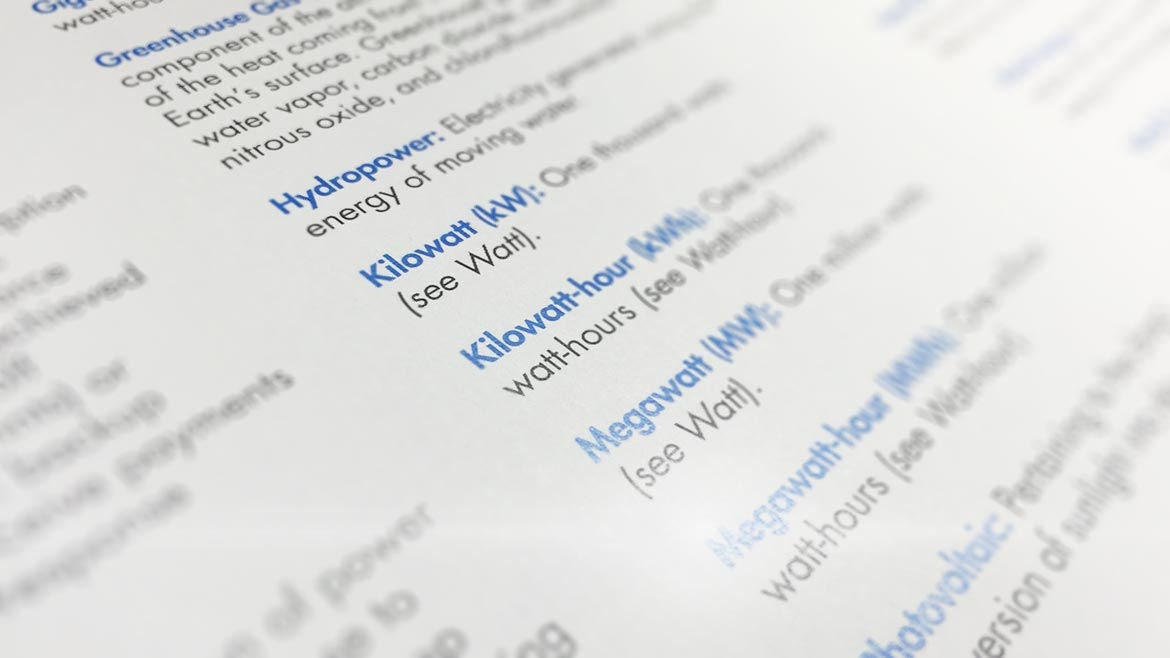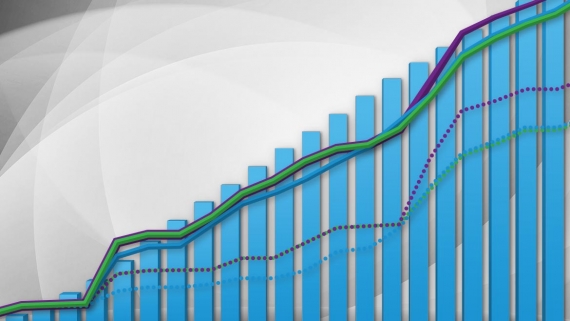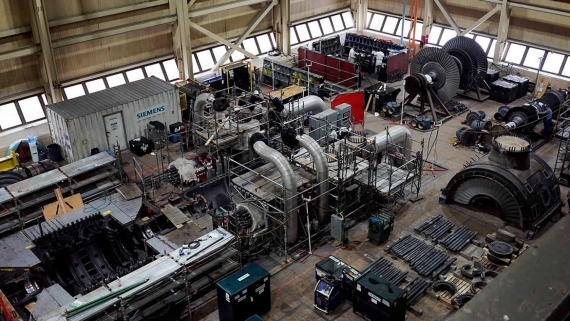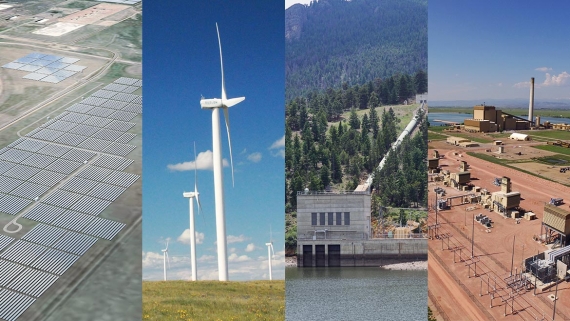
(see Greenhouse Gas).
Circuit: A pathway through which electricity moves.
Demand Response: Reduction in consumption of utility-provided electricity by end-use customers in response to system resource capacity needs. Reduction can be achieved through curtailment (e.g., turning off lights, raising temperature set points) or self-generation (e.g., turning on backup generators). End-users may receive payments for participating in demand response programs.
Distributed Generation: Generation of power using small-scale sources located close to where the electricity is used (e.g., rooftop solar, community garden solar, reciprocating internal combustion engines).
Electric System: Physically interconnected generating plants, transmission lines, and related equipment.
Gigawatt-hour (GWh): One billion watt-hours (see Watt-hour).
Greenhouse Gas (GHG): A gaseous component of the atmosphere that traps some of the heat coming from the sun near the Earth’s surface. Greenhouse gases include water vapor, carbon dioxide, methane, nitrous oxide, and chlorofluorocarbons.
Hydropower: Electricity generated using the energy of moving water.
Kilowatt (kW): One thousand watts (see Watt).
Kilowatt-hour (kWh): One thousand watt-hours (see Watt-hour).
Megawatt (MW): One million watts (see Watt).
Megawatt-hour (MWh): One million watt-hours (see Watt-hour).
Photovoltaic: Pertaining to the direct conversion of sunlight into electricity.
Photovoltaic System: A complete set of components for converting sunlight into electricity by the photovoltaic process (see Photovoltaic).
Solar Energy: The radiant energy of the sun, which can be converted into other forms of energy, such as heat or electricity.
Voltage: The force that causes electricity to flow through a circuit (see Circuit).
Watt: A unit of electric power.
Watt-hour: The amount of energy used in one hour by a device requiring one watt of electricity for operation (see Watt).
Wind Energy: Kinetic energy present in wind motion that can be converted to mechanical energy for driving electric power generators.
Wind Turbine: Wind energy conversion device that produces electricity; typically three blades rotating about a horizontal axis and positioned up-wind of the supporting tower (see Wind Energy).


